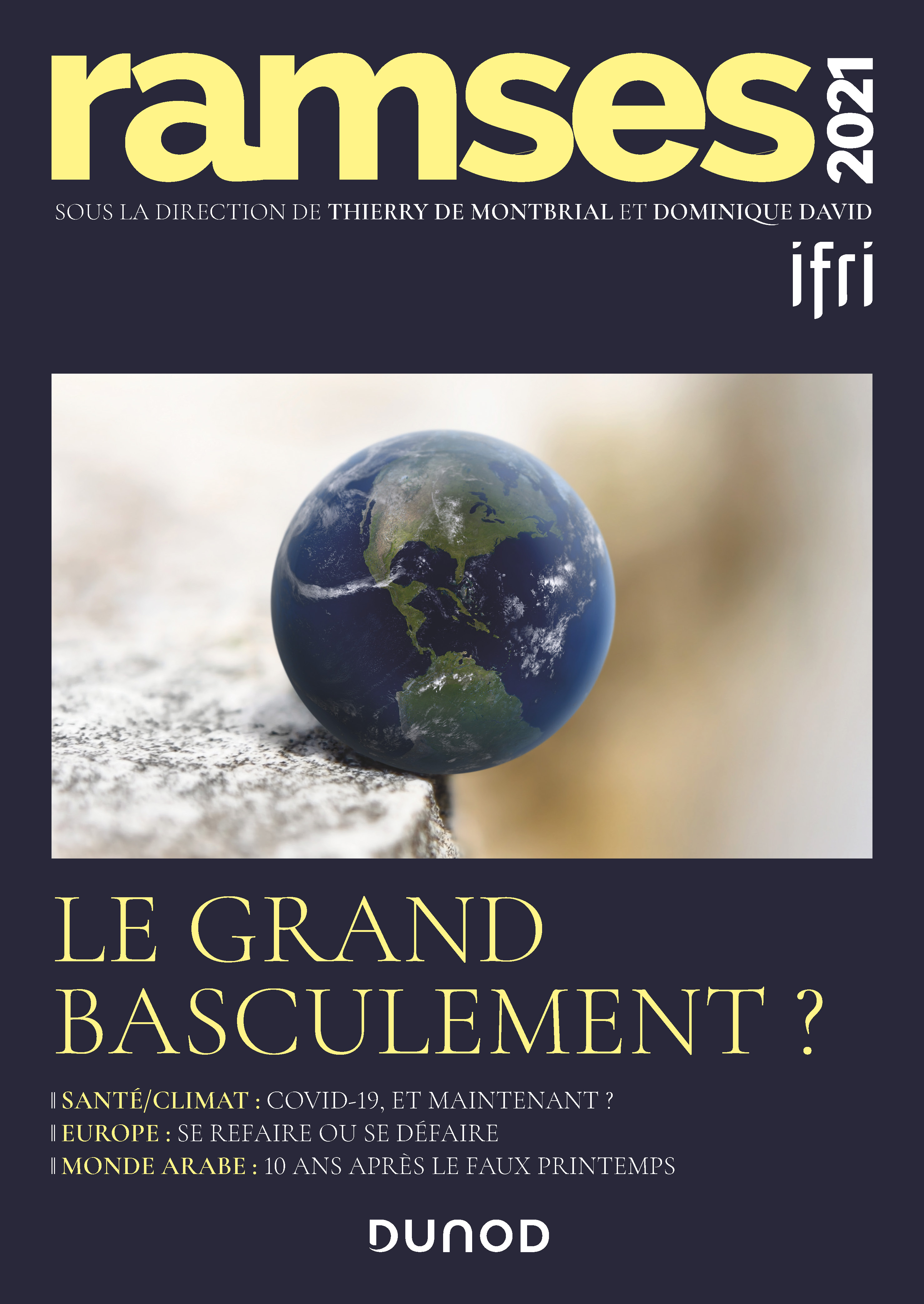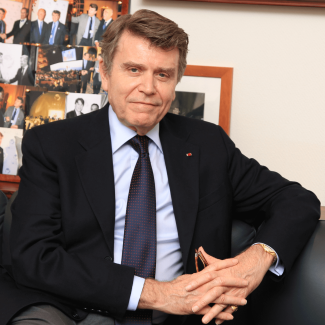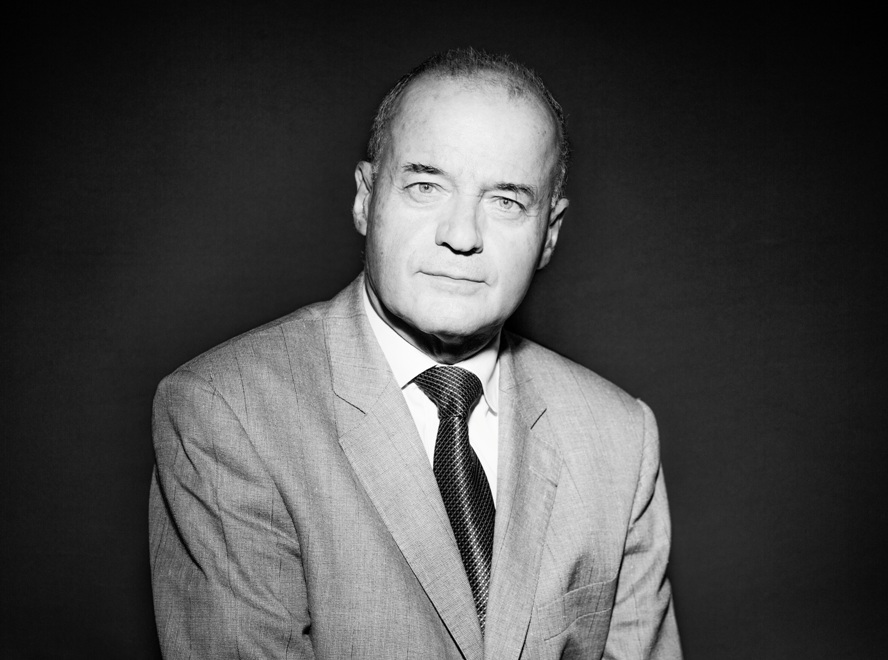RAMSES 2021. At the Edge?

RAMSES 2021. At the Edge?, written by Ifri's research team and external experts, offers an in-depth and up-to-date analysis of geopolitics in today’s world.

- In "Perspectives", the opening section of RAMSES 2021, Thierry de Montbrial, founder and Executive Chairman of Ifri, provides an analysis of the state of global affairs.
- Three main questions are treated in the second section, "Trois enjeux pour 2021":
- Global Health/Climate: COVID-19, what now?: The coronavirus is emblematic of globalization: no one controls or masters its spread. Who is governing? There is no specific governance for such global matters as health, environment, information…
- Europe: redo or undo: As usual, reviews of the European Union are mixed: pale but decisive, unavoidable. Should it be redone or undone? Should Europe think of itself as a political project or subsist as a mere safety net: these are options facing the Conference on the Future of Europe.
- Middle East: 10 years after the false spring: The post-spring decade and the coronavirus crisis go side by side: reinforcement of control over civil societies, growing weight of authoritarian regimes, meltdown of the global economy, and an important division of societies in rebellion.
- The third section, Le Monde en questions, offers a thorough study of recent conflicts, strategies, and important international negotiations.
- The final section, Les Repères, presents a mix of statistics, timelines and original maps.
RAMSES 2021 also includes 8 videos featuring Ifri researchers providing concise analysis of the most critical issues in international affairs.
>> Purchase the book in French <<

Available in:
Regions and themes
ISBN / ISSN
Share
Related centers and programs
Discover our other research centers and programsFind out more
Discover all our analyses
RAMSES 2025. Between Powers and Powerlessness
Never before have there been so many powers able to upset the international balance of power, and never before have the dominant powers seemed so powerless to counter the fragmentation of the world.
Out of Thin Air but More than a Mirage: The Politics of Saudi Arabia's Nascent Music Industry
This study critically examines Saudi Arabia’s nascent music industry, which is promoted as a key element of Vision 2030, Crown Prince Mohammed bin Salman’s strategic framework to diversify the kingdom’s economy. It explores how state-led investments in music and entertainment intersect with authoritarian governance. The author neither dismisses these investments as conspicuous spending nor reproduces an alarmist narrative of impending cultural imperialism. The article takes a political sociology approach to understand how Saudi entertainment plans consolidate domestic power and reshape regional cultural landscapes.
Hostage diplomacy of the Islamic Republic of Iran. The case of Europeans detained in Iran
The so-called hostage diplomacy of the Islamic Republic of Iran refers to a political and diplomatic strategy in which Tehran uses the detention of Western nationals, dual citizens, or Iranian citizens residing in Europe, Australia, or the United States as leverage in diplomatic negotiations. This practice aims to exert pressure to secure political, economic, or diplomatic concessions as part of Tehran’s asymmetric response strategy. Hostage diplomacy remains a controversial yet effective tool from the perspective of the Islamic Republic of Iran, given its context of economic sanctions and diplomatic isolation.
Is the Republican People’s Party (CHP) Rising from the Ashes?
The victory of the CHP [Cumhuriyet Halk Partisi, Republican People’s Party] in the Turkish municipal elections of March 2024 firmly established it as the leading party of opposition to the Islamic-conservative AKP [Adalet ve Kalkınma Partisi, Justice and Development Party], which has been in power since 2002.











